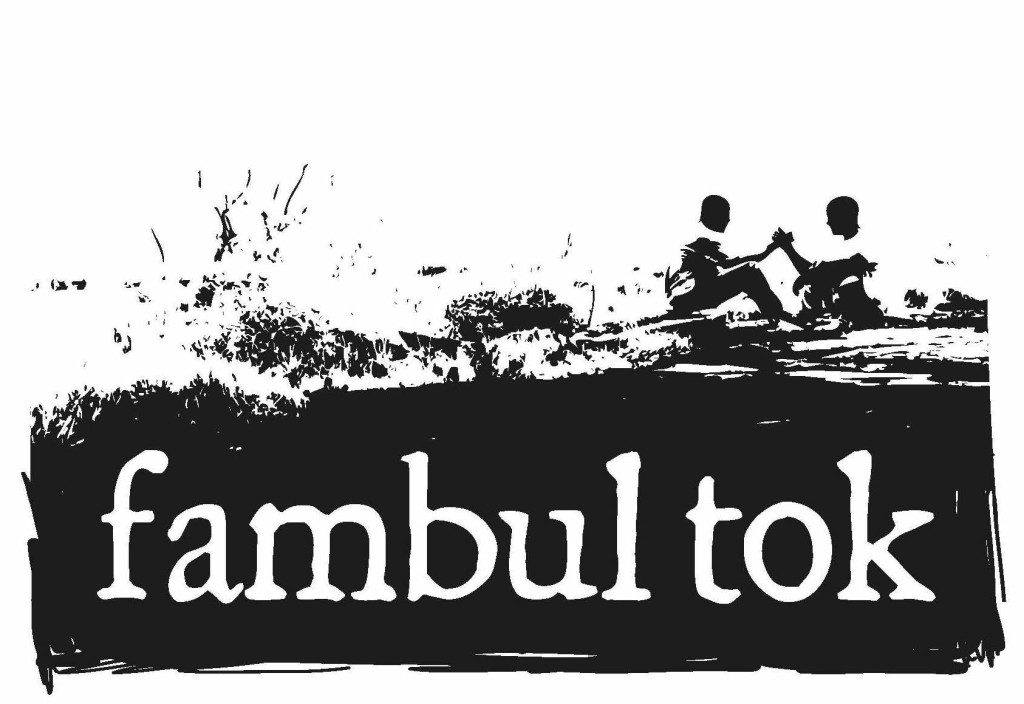Fambul Tok Director/Producer Sara Terry speaks eloquently about filmmaking that tries to let a culture speak for itself⎯being mindful of a Western audience, without imposing Western assumptions on the story itself or how it gets told. Her Director’s Statement, copied below, illuminates CFP’s approach to storytelling⎯responding to Ben Okri’s call for a ‘new seeing’ of Africa, that can help ‘reveal its brightness, its brilliance, its beauty.’

The Power of Forgiveness: Truth-Telling And Filmmaking in Post-Conflict Sierra Leone
When I was in high school, I remember reading a newspaper story about a village in Africa—and the way that villagers dealt justice to one of their own who had committed a crime (a theft, I think it was). When the offender was caught, he was brought into the middle of the village to acknowledge his crime, and all of the residents formed a circle around him. One by one, each person addressed the offender by name – and then identified something good about him, something of value in his character. And so it went around the whole circle, the rendering of one judgment after another – not of condemnation, but of affirmation, a determination to bring the offender back to an awareness of his true self, to remind him so forcefully of his own inherent goodness that he would not commit a crime again.
I have thought often of that story—particularly so over the past three years as I have been making Fambul Tok. For a western mind-set, convinced that law and order – and justice – are maintained by punishment and imprisonment, it is a shock to encounter a culture and a people who believe that true justice lies in redemption and healing for individuals, and that truth-telling and forgiveness is the surest path to restoring dignity and building strong communities. It’s more than many of us can wrap our minds around.
In fact, when I first shared these incredible stories of apology and forgiveness from Sierra Leone with a colleague who would eventually become closely involved with the film, his response was, “Wow, so we’re going to look at all these horrible things that happened during the war, and then ask, How on earth can these people forgive it?” I had to explain several times, that no, I did not want to stand outside this culture, apart from these people, and make a film from an incredulous point of view, that demanded them to prove the reality and practicality of these acts of forgiveness. My standpoint as a filmmaker would be to take their standpoint, to let their words, their stories, their lives show me, show all of us, why forgiveness was possible for them. Because maybe then, we might begin to learn why forgiveness is possible for the rest of us.
It was a tricky thing to make a film that tries to let a culture speak for itself while being mindful of a Western audience that I fully expected would be baffled by the idea that truth-telling and forgiveness equate with justice. I was always doing interviews in the field, and working in the edit room, with those viewers in mind, trying to make a film that takes viewers deeper and deeper into this culture of forgiveness, into the fabric of communities that are bound by what South Africans call ubuntu, which means essentially, “Because you are, I am.”
That’s why the film doesn’t build in a traditional way, doesn’t step up from horrific story to ever more horrific story. The film spills out more gently, more subtly— tracking the story of a culture that is being reborn before our eyes, and of a people who themselves are being renewed as they revive their ancient practice of fambul tok, of resolving conflict through conversation.
At the heart of this film, too, is a decision made early on, that there would be no Western voices in this narrative—no Western experts, no Western reporters who covered the war, no Western archival footage. I believe the West has had more than its fair share of opportunity to tell Africa’s stories, to tell the stories of Sierra Leone, to be the arbiters and filters of a culture we don’t even begin to understand. I believe, quite firmly, that we should stop talking about saving Africa—and start coming to this continent and its people—to the people of Sierra Leone—with the humble desire to learn from their great wisdom. In making Fambul Tok, I have tried to answer the call of Nigerian writer and Booker Prize winner Ben Okri, who wrote:
We have to re-discover Africa. The first discovery of Africa by Europe was the wrong one. It was not a discovery. It was an act of misperception. They saw, and bequeathed to future ages, an Africa based on what they thought of as important. They did not see Africa. And this wrong seeing of Africa is part of the problems of today. Africa was seen from a point of view of greed, of what could be got from it. And what you see is what you make. What you see in a people is what you eventually create in them. It is now time for a new seeing. It is now time to clear the darkness from the eyes of the Western world. The world should now begin to see the light in Africa, to see its sunlight, to see its brightness, its brilliance, its beauty. If we see it, it will be revealed… Only what we see anew, is revealed to us. Africa has been waiting, for centuries, to be discovered with eyes of love, the eyes of a lover. There is no true seeing without love.
Sara Terry
Los Angeles
February 2011
Blog banner image (c) Sara Terry for Catalyst for Peace

